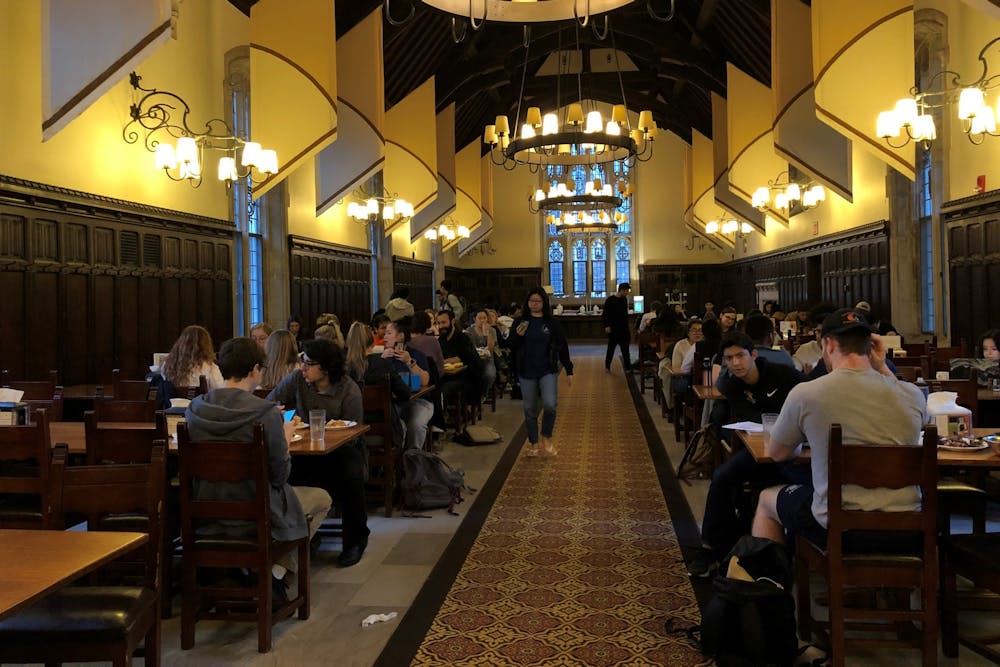The lift of the mask mandate on Princeton’s campus is a decision that will significantly transform the second half of our spring semester. I am confident that Princeton’s decision will facilitate interpersonal connection that, thus far, has been absent and much needed, especially for students who have been on campus solely during the time of COVID-19.
2021 was a school year ridden with COVID-related anxiety. Because almost no one had received their vaccinations, students had to remain cautious, avoid large gatherings, and keep significant physical distance from one another. This caution was not always employed — it is only natural that young adults do not always abide by the rules. However, there was undoubtedly an unspoken consensus among the student body that the consequences of contracting the virus included not only being sentenced to a 10-day isolation period, but also an unknown onslaught of symptoms that could range from a runny nose to a condition that could land you in the hospital.
Pre-COVID, I imagined college as a sort of extended summer camp where I would be able to find some of my closest friends over the course of just a few weeks. College is perhaps the most conducive environment to such lasting and rapidly-evolving friendships. This is possible because most undergrads live in close proximity to one another; we share meals with one another almost every day; we study together until the early hours of the morning; and most importantly, we navigate the initial stages of adulthood as a community. By the end of my freshman year, however, I found myself only able to connect with a strikingly small number of people whom I had met. Though necessary, the COVID-19 restrictions inevitably played a part in stunting my ability to develop new friendships.
Without the physical familiarity of friendships that had been formed pre-pandemic, I found it difficult to deeply connect with much of the Princeton student body. The palpable sense of caution around campus disincentivized — and made much less possible — the emergence of relationships as intimate as I had hoped.
Unlike last spring, this school year has served to mitigate the pervasive fear of COVID-19, at least within my own social circles. On campus, anxiety regarding contraction of the virus has decreased significantly among those who are not immunocompromised. For most students with COVID-19, symptoms are fairly mild; most students no longer consider the virus to be potentially life threatening. As a result, students are less consumed by the prospect of contagion and have become more at ease around their peers.
The presence of masks inside campus buildings throughout the past semester served as the last remaining source of COVID-19 paranoia until the removal of the mandate on March 14. It was initially difficult to identify why, exactly, the difference between a masked and maskless classroom is so dramatic. My classmates have not changed, nor have the conversations held in lectures or precepts. What the removal of masks does imply, however, is the alleviation of wariness — or the pretense of wariness — of contagion, resulting from in-class interactions. Though this does not immediately enhance the relationships between my peers and I, it does make it more possible to connect. Without the mandate, Princeton’s campus has begun to once again host a community of students who feel, and look, more at ease with their contemporaries.
There is, of course, legitimacy in arguments against the removal of the mandate. In the event of another COVID-19 spike, Princeton’s decision may exacerbate the spread. However, removing the mask mandate also necessitates a degree of social responsibility from Princeton’s student body. If someone is a close contact of a COVID-19 patient, they must proactively re-mask; if asked to keep their masks on by another student or faculty member who is uncomfortable, one must comply.
Thus, an un-masked campus will solidify students’ sense of obligation to the University community, ultimately fostering a more compassionate student body with members who are invested in respecting one another’s personal choices. This is strikingly different from last year’s disconnected campus environment, which makes me hopeful that the mandate lift is a step in the right direction.

The decision to remove the mask mandate marks the gradual, yet eventual, end to the pandemic’s social repercussions for our campus. Even though we must approach this transition with utmost sensitivity, it is a transition that is much needed. I, for one, look forward to its positive impacts on students’ social life.
Andi Grene is a sophomore from New York. She can be reached at agrene@princeton.edu.









